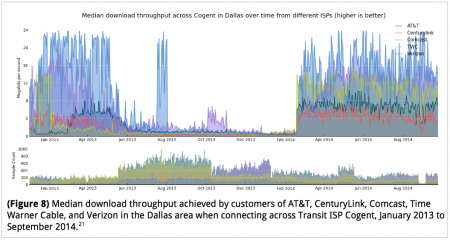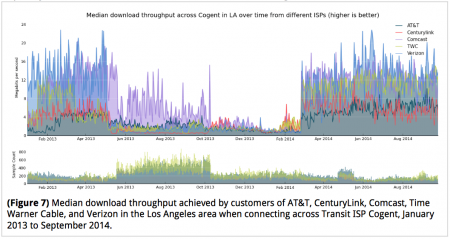Last week, M-Lab, a group that monitors select Internet network links, issued a report claiming interconnection disputes caused significant declines in consumer broadband speeds in 2013 and 2014.
This was not news. Everyone knew the disputes between Netflix and Comcast/Verizon/AT&T and others affected consumer speeds. We wrote about the controversy here, here, and here, and our “How the Net Works” report offered broader context.
The M-Lab study, “ISP Interconnection and Its Impact on Consumer Internet Performance,” however, does have some good new data. Although M-Lab says it doesn’t know who was “at fault,” advocates seized on the report as evidence of broadband provider mischief at big interconnection points.
But the M-Lab data actually show just the opposite. As you can see in the three graphs below, Comcast, Time Warner, Verizon, and to a lesser extent AT&T all show sharp drops in performance in May of 2013. Then network performance of all four networks at the three monitoring points in New York, Dallas, and Los Angeles all show sudden improvements in March of 2014.
The simultaneous drops and spikes for all four suggest these firms could not have been the cause. It would have required some sort of amazingly precise coordination among the four firms. Rather, the simultaneous action suggests the cause was some outside entity or event. Dan Rayburn of StreamingMedia agrees and offers very useful commentary on the M-Lab study here.




